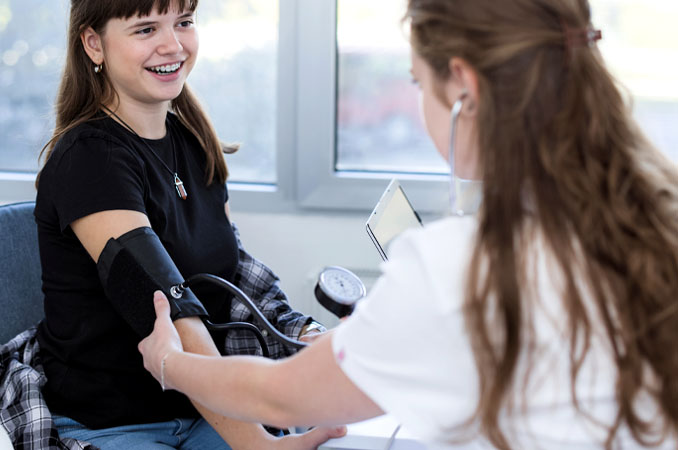
What is Breast Cancer?
Breast cancer is a form of cancer that begins in the breast as a group of cancer cells that eventually invade surrounding tissues or metastasize to other parts of the body. Cancer, a broader illness, is the process in which abnormal cell growth occurs and invades the healthy cells in the body.
The body’s ability to control the creation and growth of cells doesn’t work properly, prompting the overgrowth of cells that lead to what we know as “tumors.” Breast cancer can occur when the cells in the breast don’t divide and grow normally. Keep in mind that these tumors can take years to grow. However, some tumors are more aggressive and can grow much faster.
Types of Breast Cancer:
Types and stages of breast cancer include ductal carcinoma (cancer) in situ (in the original place) or DCIS, invasive ductal breast cancer (IDC), metastatic breast cancer and inflammatory breast cancer (IBC).
-
DCIS is a non-invasive breast cancer, meaning the abnormal cells haven’t spread outside of the breast milk ducts. This diagnosis is typically the early stages of cancer that can lead to invasive breast cancer.
-
IDC or infiltrative ductal carcinoma is when the abnormal cancer cells have left the breast milk ducts and have spread into the breast tissue. This is the most common type of breast cancer and most commonly affects men.
-
Metastatic breast cancer or stage 4 breast cancer means the cancer has spread to other parts of the body - typically the lungs, liver, bones or brain.
-
IBC often requires aggressive, immediate treatment. This cancer is typically categorized as stage 3 when detected and appears when the lymph nodes in the breast are blocked by cancer cells.
Risk Factors:
Genetic or environmental factors contribute to a breast cancer diagnosis. Genetics factors are risk factors you cannot change. These include age, race, family history, personal health history, early menstruation and late menopause. However, if you have these factors, it doesn’t necessarily mean you will receive a diagnosis.
Factors you can control to reduce your risk of breast cancer include lack of physical activity, poor diet, being overweight or obese, drinking alcohol, radiation to the chest and combined hormone replacement therapy (HRT). To reduce the risk, be sure to develop a source of exercise or routine, include fruits and vegetables in your diet, get to and maintain a healthy weight, limit alcohol usage and avoid radiation.
Sources:
National Breast Cancer Foundation




 Women's Health
Women's Health Eat Healthy
Eat Healthy Exercise
Exercise Health & Wellness Articles
Health & Wellness Articles